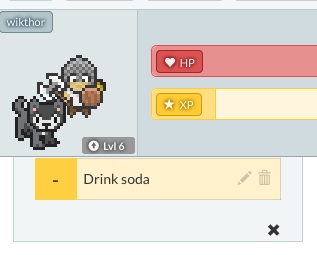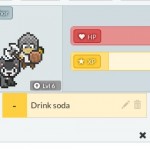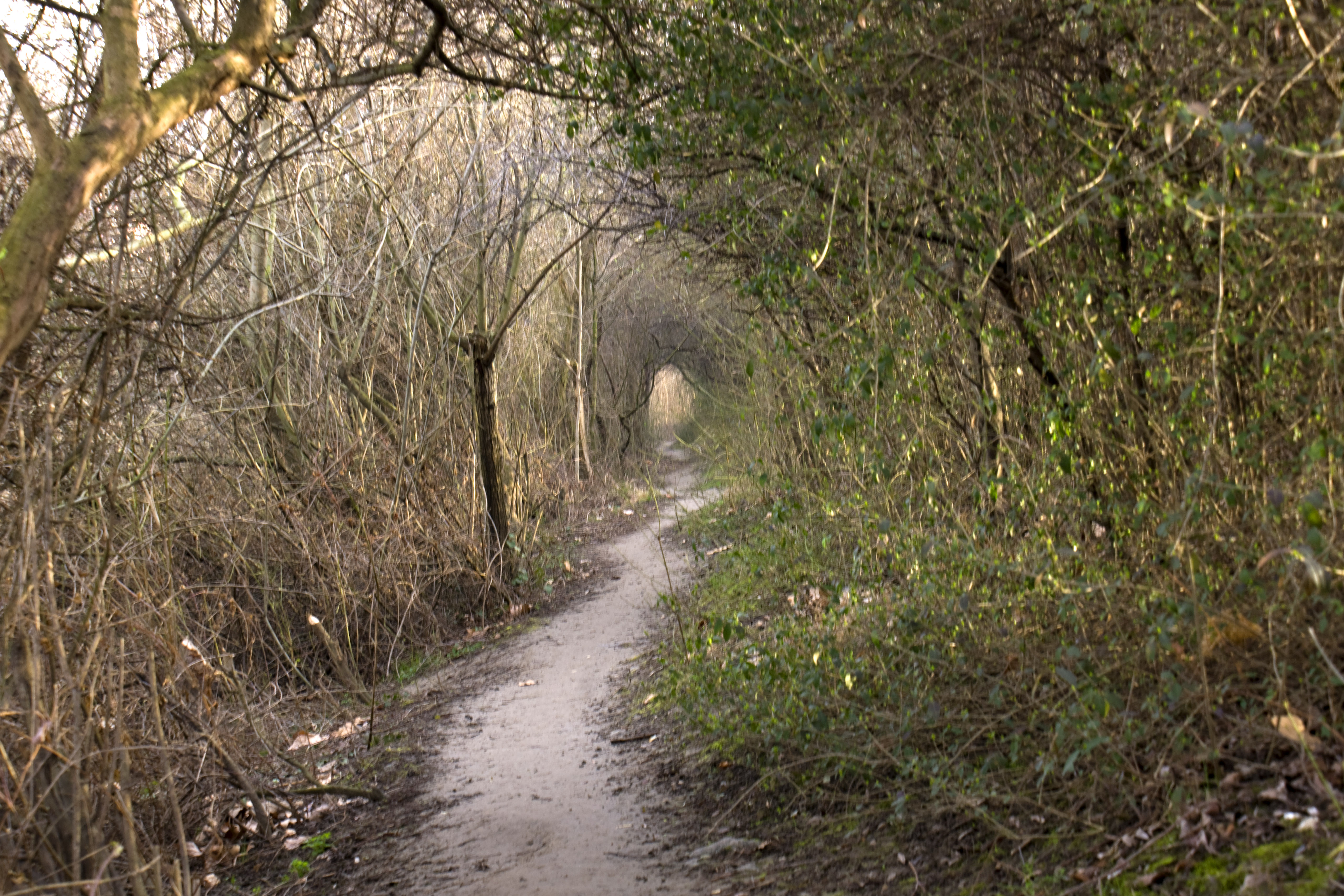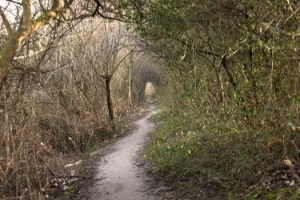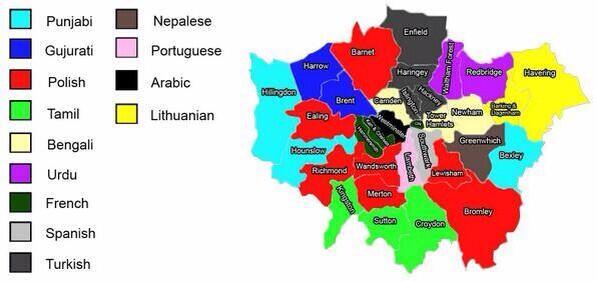The guy on the Tube looked at me and asked “do you want to sit down, mate?” – I use a walking cane for my foot injury these days. I said no, thanks – so he looked around and gave up his seat to a pregnant lady.
On my way from the Tube station, I saw a guy kneeling beside a car and changing a wheel for a family who didn’t know how to it.
And one more thing, one that happens on the Tube every day: a free newspaper with a column in which people thank other people for being kind to them. There’s a name for those situations: “random acts of kindness.” And I think that is not a fair name to apply here.
1. True Random and pretty evil
There are some games which depend purely on luck. There is nothing you can do about the outcome of roulette (unless you count the tricks that get you kicked out of casinos). Flipping a coin gives you either a good or a bad result. You win or you lose. And even this is an overstatement: you did nothing to deserve a win or a lose – the result is purely arbitrary. This, to me, is what “random” really means.
Then, there are some games in which the world is purely evil. You enter the next level and have to go through it alive, despite dozens of bad guys, monsters or traps. There is no randomness there – video games are actually pretty good at artificial intelligence – but there’s plenty of simulated malice. You’re the good guy and the evil world is out to get you.
I’m mentioning this because it helps us look at kindness again.
2. Kind and automatic
It usually takes a loud thump and scream a fraction of a second to reach your ears – and you instantly rush to the other room to see whether someone needs help, whether they dropped something or hurt themselves.
On a larger scale, it usually takes only a few hours after people become aware of a disaster for charity aid to start working. Bank accounts are filling up. Blood donors are queueing up. Appeals for help become coordinated. Things begin to look less terrifying, a bit more manageable. (Read Biz Stone’s book for how this worked out when people started using Twitter)
This is kind, and different from the “true random” scenario above. You cannot control earthquakes or tsunamis yet – but the heartwarming fact is the automatic response that tends to kick in to help those in need. This is automatic kindness – still, there’s something more behind it.
3. Mindful acts of kindness
Think about that guy on the Tube with me. He saw me standing there, he asked if I needed a seat. I didn’t. He looked around and saw that pregnant lady. So she got his seat.
If you think that’s simple, you have clearly never ridden on a Tube during rush hour. And even if the surroundings were more pleasant, it still took a lot of noticing for that seat to become available – for the final outcome to be kindness.
That guy later, who helped change the tire, might have decided to do so himself or he might have been approached by someone from the family. But still, it took some deliberation before he decided to help. And when he did, he didn’t just stand there and instruct others grumpily: he got his hands dirty so that the family could drive on.
This is my point here: these acts of kindness were not random. Even if the thinking behind them took a second – even if they seemed instantaneous – they happened because someone decided to be kind.
So why the phrase? Why “random” goes with “kindness” so often?
4. Back to being your own hero
There’s one more thing that happened down the road from the Tube station (hey, it’s a busy street, and crowded). A guy walked out of the shop and looked around before walking on – straight in my cane-wielding, bravely-limping path. All he got from me as he tried to swerve and avoid me was a stare and a frown. I marched on and didn’t care if he was scared, embarrassed or annoyed by my marching on.
See, this is where I tend to spend a lot of time: in my own story, my own plot – my own level of a game to complete. I’m the point of view, and getting to work is my quest. This bloke just happened – and messed up my path. Clearly a baddie, an obstacle, like dozen others in my way before the day is gloriously over…
When you’re out to achieve, when you’re focused on what you do and feel, others tend to be playing very small parts. Maybe others don’t tend to play as humans at all. So when a kind act happens, you’re surprised. It’s unexpected. It’s out of the blue – normally the opposite thing happens to you, or nobody cares at all. It’s kind and random. Or so it seems.
It’s not random, and that’s the amazing thing. Someone looks around and notices things. Someone has an idea: “I can help out here.” And acts on that idea. Sometimes it’s you, sometimes it happens to you.
5. The homework
Try to notice 3 good and nice things people around you do. No matter how small or big these things are, just try to get three of those kind moments. Pay attention to the gestures, the tone of their voice if there’s speech involved – focus on their facial expressions, see what they do afterwards and how the other person reacts – again, try to get to what they look like, what they say, how they sound.
If you can’t get to notice those with other people, hey – you’re just going to have to instigate those kind moments yourself!
The key in this exercise is to realise one thing: there’s a lot of interaction, thinking and conscious focus happening behind every kind action. And calling it “random” is just a cop-out, really.
 This is a quick note inspired by an exercise I did for myself the other day. It is connected with long-term thinking, but also with the prices and money matters connected with learning foreign languages. I’m going to give you a few ideas about how to budget for your bilingual education – but I’m happy to hear yours!
This is a quick note inspired by an exercise I did for myself the other day. It is connected with long-term thinking, but also with the prices and money matters connected with learning foreign languages. I’m going to give you a few ideas about how to budget for your bilingual education – but I’m happy to hear yours! 
